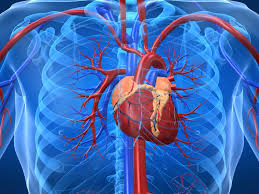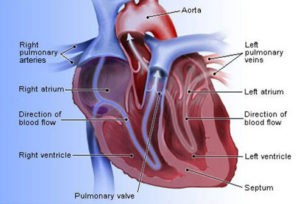
Recently Diagnosed or Relapsed? Stop Looking For a Miracle Cure, and Use Evidence-Based Therapies To Enhance Your Treatment and Prolong Your Remission
Multiple Myeloma an incurable disease, but I have spent the last 25 years in remission using a blend of conventional oncology and evidence-based nutrition, supplementation, and lifestyle therapies from peer-reviewed studies that your oncologist probably hasn't told you about.
Click the orange button to the right to learn more about what you can start doing today.
- You are here:
- Home »
- Blog »
- Multiple Myeloma »
- Depression, Heart Failure- Myeloma
Depression, Heart Failure- Myeloma

“Despite the prevalence of depression in heart failure, we remain abysmal in detecting, diagnosing and treating depression, which remains an independent predictor of mortality.”
Living the life of a long-term MYELOMA survivor is hard enough. But living with chemotherapy-induced cardiomyopathy-CIC (heart failure-HF) is downright depressing.
I consider it to be adding insult to injury and even more depressing that my cardiologist, the man who gave me my diagnosis of CIC aka HF, authored the article linked and excerpted below. Could cardiac rehabilitation be the answer?
That is correct. Dr. Rouhit Moudgil diagnosed my CIC, HF and then told me that I should take a beta blocker called metoprolol.
The insult to injury aspect of my story is that common side effects of metoprolol are fatigue and “serious” depression.
On the one hand Dr. Mougil authored the paper below, yet on the other hand, he prescribed a drug knowing that it will probably make me feel tired, gain weight, feel depressed and more.
The onco-cardiologist who admits to being abysmal at treating depression treats my CIC by prescribing metoprolol, a known cause of depression?
I consider side effects like constipation and lack of interest in sex to cause depression as well but I want to stay focused here.
To be fair to Dr. Moudgil, metoprolol lowers blood pressure. My BP was approx. 132/90 at my last appointment with him. However, I would argue that non-toxic therapies such as weight loss, frequent, moderate exercise, nutrition, supplementation, others, are more effective therapies if the patient (me!) is trying to manage several health challenges at once.
More importantly, evidence-based, non-toxic therapies such as weight loss, frequent, moderate exercise, heart healthy nutrition, heart healthy supplementation, others- make me feel great! Metoprolol…not so much.
The health challenges that I’m talking about are:
- Atrial Fibrillation
- Blood Pressure
- Weight loss
- CIC, Heart Failure
I’m not condemning all conventional HF therapies. Each and every one of us HF survivors must decide for ourselves if we take heart meds or practice evidence-based, non-toxic cardiac rehab therapies.
My point is that I have found conventional medicine to promote medicines such as metoprolol first and non-toxic therapies like exercise, nutrition, supplementation, etc. second, if at all.
I developed chronic Afib in late 2010. I suspected it was caused by my chemotherapy in 1994 but the cardiologist at the time didn’t specifically say so. Since that time, I have managed to maintain an ejection fraction of 40-45, a blood pressure of about 120/80, a pretty good body mass index (BMI), and pretty heart health nutrition.
I’m working on developing a list of nutritional supplements shown by research to manage my CIC aka HF. If you would like more info about these heart healthy supplements, scroll down the page, post a question or comment and I will reply to you ASAP.
- To Learn More about Non-toxic heart therapies- click now
- Click now to learn more about the emotional aspects of cancer
In the meantime, hang in there. Don’t be depressed.
Thanks,
David Emerson
- Myeloma Survivor
- MM Coach
- Director The Galen Foundation
Recommended Reading:
- Cardiac Rehabilitation- 7 Best Yoga Poses for a Healthy Heart
- Cardiac Rehab with Magnesium
- CoQ10 to Improve Ejection Fraction in Congestive Heart Failure
Depression in heart failure.
PURPOSE OF REVIEW:
This review aims to provide a general overview of the recent advances in understanding of depression as it pertains to heart failure. The focus is to impart an up to date knowledge in this field.
RECENT FINDINGS:
The mortality associated with heart failure remains high despite recent pharmacologic interventions that have improved survival. The situation is complicated by recent recognition of depression being widespread in this population. Depression is a hard diagnosis, as some of the features coincide with the symptoms of heart failure. Recently the psychological sequelae of depression have been under major scrutiny, as it has been associated with increased morbidity. In addition, current data are quite compelling on prevalence of depression in heart failure patients. Therefore, it is imperative to highlight the recent challenges and to recognize areas requiring future research.
SUMMARY:
Despite the prevalence of depression in heart failure, we remain abysmal in detecting, diagnosing and treating depression, which remains an independent predictor of mortality. Therefore, more research and more awareness are required in this arena.
Depression in cancer patients: Pathogenesis, implications and treatment (Review)
“Depression is a common comorbidity in cancer cases, affecting >10% of patients. A cancer diagnosis is life-changing, and is a source of considerable psychological and emotional stress.
Non–pathological sadness may be a normal response to a cancer diagnosis, however, stress beyond the coping mechanisms of patients may result in major depressive disorder.
The current review, in addition to the obvious psychosocial elements of depression, explores its biological mechanisms, including tissue damage, inflammatory mediators and the chronic stress response, and how these immune and endocrine pathways may underlie depression in cancer.
Possible iatrogenic causes of depression in cancer are also explored. There is a strong need to identify and treat depression in cancer patients in order to increase quality of life and reduce mortality. The most popular clinical and potential future biochemical screening tools for depression in cancer are briefly discussed. The interventions used will vary for every patient, but may include psychosocial therapies or pharmacotherapy; however, a paucity of research on the most effective management of depression in cancer means the optimal combination of therapies is unknown. Selection of antidepressants should be carefully considered, given the common side effects of chemotherapy (such as nausea), and the necessity to avoid serious interactions, including reducing the effectiveness of chemotherapeutic drugs.
The possible link between the chronic stress response, which may predispose patients to depression, and the risk of mortality from cancer is also explored. The complex interactions between the endocrine, nervous and immune systems, which continue to be elucidated, may offer the opportunity for the development of more rapid and efficacious treatments for depression in cancer in the future…”


